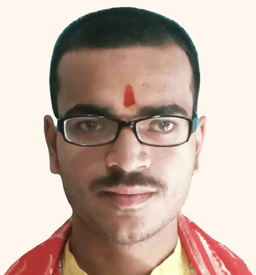Bhai Dooj 2024 : Date, Celebration and Significance

About Bhai Dooj
The festival of Bhai Dooj symbolizes the special bond of a brother and sister. All the sisters apply tilak to their brothers' foreheads on this day and offer prayers for their prosperity, success, and long life. Let’s discuss when Bhai Dooj will be celebrated this year and its Shubh mahurat. Festivals are regarded as the most significant and auspicious time of the year in India. Whether it's Diwali, Dussehra, Raksha Bandhan, or Janmashtami. Every celebration has its own history, customs, and meaning. One of these festivals is Bhaidooj, which is celebrated by Hindus in different regions of India. Bhaidooj, also called bhai Phonta, Bhai Beej, and yam Dwitiya, shares similarities to Raksha Bandhan in many ways. Every year in November, the celebration takes place on the second lunar day of Shukla Paksha. "Day of Brothers" is the true meaning of Baidooj, which honors the relationship between a brother and sister. Bhai Dooj mostly falls in the month of Kartik.
The festival of Bhai Dooj symbolizes the special bond of a brother and sister. All the sisters apply tilak to their brothers' foreheads on this day and offer prayers for their prosperity, success, and long life. Let’s discuss when Bhai Dooj will be celebrated this year and its Shubh mahurat. Festivals are regarded as the most significant and auspicious time of the year in India. Whether it's Diwali, Dussehra, Raksha Bandhan, or Janmashtami. Every celebration has its own history, customs, and meaning. One of these festivals is Bhaidooj, which is celebrated by Hindus in different regions of India. Bhaidooj, also called bhai Phonta, Bhai Beej, and yam Dwitiya, shares similarities to Raksha Bandhan in many ways. Every year in November, the celebration takes place on the second lunar day of Shukla Paksha. "Day of Brothers" is the true meaning of Baidooj, which honors the relationship between a brother and sister. Bhai Dooj mostly falls in the month of Kartik.
Bhai Dooj 2024 Date and Shubh Mahurat
In 2024, Bhaidooj will be celebrated on November 3, 2024, Sunday. The Dwitiya Tithi will start at 8.21 pm on November 2, 2024, Saturday and end at 10.05 pm on November 3, 2024, Sunday. The apaharan timing will be from 01.17 pm to 03.38 pm.
In 2024, Bhaidooj will be celebrated on November 3, 2024, Sunday. The Dwitiya Tithi will start at 8.21 pm on November 2, 2024, Saturday and end at 10.05 pm on November 3, 2024, Sunday. The apaharan timing will be from 01.17 pm to 03.38 pm.
Significance and History of Bhai Dooj
The main significance of Bhai Dooj is that in order to receive protection from their brothers in every situation, all of the girls tie a sacred thread (Mauli or Kalawa) on their brother’s wrists on the day of Bhai Dooj. The sisters also offer prayers for their brother’s long life and good health. On the day of Bhai Dooj, families spend happy time together. According to hindu mythology, people started celebrating Bhai Dooj because of two different tales. In ancient times, Lord Krishna, the ninth incarnation of Lord Vishnu returns to their home after defeating demon Narakasura in a battle. On their return, Subhadra, the sister of Krishna, welcomes him by performing aarti, applying tilak on his forehead and tying a kalava on his wrist. Subhadra prays for the well-being of his brother Krishna and in return Krishna happily promises her that he will protect her in all circumstances. Another story asserts that the Yamraj and Yamuna are connected to the celebration of Bhai Dooj. While Yamuna, his sister, is a river, Lord Yamraj is the god of death. When Yamraj once goes to see his sister, Yamuna greets him by applying tilak to his forehead. Following that, Yamraj assures Yamuna that a sister will safeguard her brother from death in the future if she applies tilak on his forehead.
The main significance of Bhai Dooj is that in order to receive protection from their brothers in every situation, all of the girls tie a sacred thread (Mauli or Kalawa) on their brother’s wrists on the day of Bhai Dooj. The sisters also offer prayers for their brother’s long life and good health. On the day of Bhai Dooj, families spend happy time together. According to hindu mythology, people started celebrating Bhai Dooj because of two different tales. In ancient times, Lord Krishna, the ninth incarnation of Lord Vishnu returns to their home after defeating demon Narakasura in a battle. On their return, Subhadra, the sister of Krishna, welcomes him by performing aarti, applying tilak on his forehead and tying a kalava on his wrist. Subhadra prays for the well-being of his brother Krishna and in return Krishna happily promises her that he will protect her in all circumstances. Another story asserts that the Yamraj and Yamuna are connected to the celebration of Bhai Dooj. While Yamuna, his sister, is a river, Lord Yamraj is the god of death. When Yamraj once goes to see his sister, Yamuna greets him by applying tilak to his forehead. Following that, Yamraj assures Yamuna that a sister will safeguard her brother from death in the future if she applies tilak on his forehead.
Rituals and Traditions
Sisters visit their brother’s homes on the day of Bhai Dooj and offer presents, sweets to their brothers. During the muhurat (auspicious time), sisters apply tilak on the forehead of their brother, tie a mauli on their brother’s wrist. After that, the sisters offer mishri (sweets) and nariyal (coconut) to their brothers. In return, brothers give their sisters money, gifts and many more.
Sisters visit their brother’s homes on the day of Bhai Dooj and offer presents, sweets to their brothers. During the muhurat (auspicious time), sisters apply tilak on the forehead of their brother, tie a mauli on their brother’s wrist. After that, the sisters offer mishri (sweets) and nariyal (coconut) to their brothers. In return, brothers give their sisters money, gifts and many more.
How Bhai Dooj is Celebrated in Different States of India
Maharashtra - The celebration of Bhai Dooj in Maharashtra is often referred to as "Bhau Beej." In accordance with historical customs, the brother must sit in the square that the sister draws on the floor. She then does aarti for him, puts tilak on his forehead, and even eats a fruit called "Karith." The sister offers her prayers for both her brother's health and financial success. Nepal - One of Nepal's most well-known festivals is Bhai Dooj, sometimes called "Bhai Tika" or "Bhai Tihar." Sisters pray to Lord Yama during the festival for their brothers' well-being and long life. Bihar - The people of Bihar commemorate Bhai Dooj, which is also called "Yama Dwitiya," in a different way. People of Bihar believed that those who have never been cursed by others are thought to be taken away by Yama, the God of Death. As a result, it is customary for the sisters to swear and throw insults at their brothers during "Yama Dwitiya" in the hopes that Yama will avoid them. The sisters then pierce their own tongues as a kind of punishment to beg for pardon. It is thought that by doing this, they would shield their brothers from Lord Yama. Following this ritual, the brothers present their sisters with special presents.
Maharashtra - The celebration of Bhai Dooj in Maharashtra is often referred to as "Bhau Beej." In accordance with historical customs, the brother must sit in the square that the sister draws on the floor. She then does aarti for him, puts tilak on his forehead, and even eats a fruit called "Karith." The sister offers her prayers for both her brother's health and financial success. Nepal - One of Nepal's most well-known festivals is Bhai Dooj, sometimes called "Bhai Tika" or "Bhai Tihar." Sisters pray to Lord Yama during the festival for their brothers' well-being and long life. Bihar - The people of Bihar commemorate Bhai Dooj, which is also called "Yama Dwitiya," in a different way. People of Bihar believed that those who have never been cursed by others are thought to be taken away by Yama, the God of Death. As a result, it is customary for the sisters to swear and throw insults at their brothers during "Yama Dwitiya" in the hopes that Yama will avoid them. The sisters then pierce their own tongues as a kind of punishment to beg for pardon. It is thought that by doing this, they would shield their brothers from Lord Yama. Following this ritual, the brothers present their sisters with special presents.
Disclaimer:
The above-provided information is based on various researches, facts may vary as per traditional customs and region. Kindly consult before performing the rituals.
The above-provided information is based on various researches, facts may vary as per traditional customs and region. Kindly consult before performing the rituals.
































































































